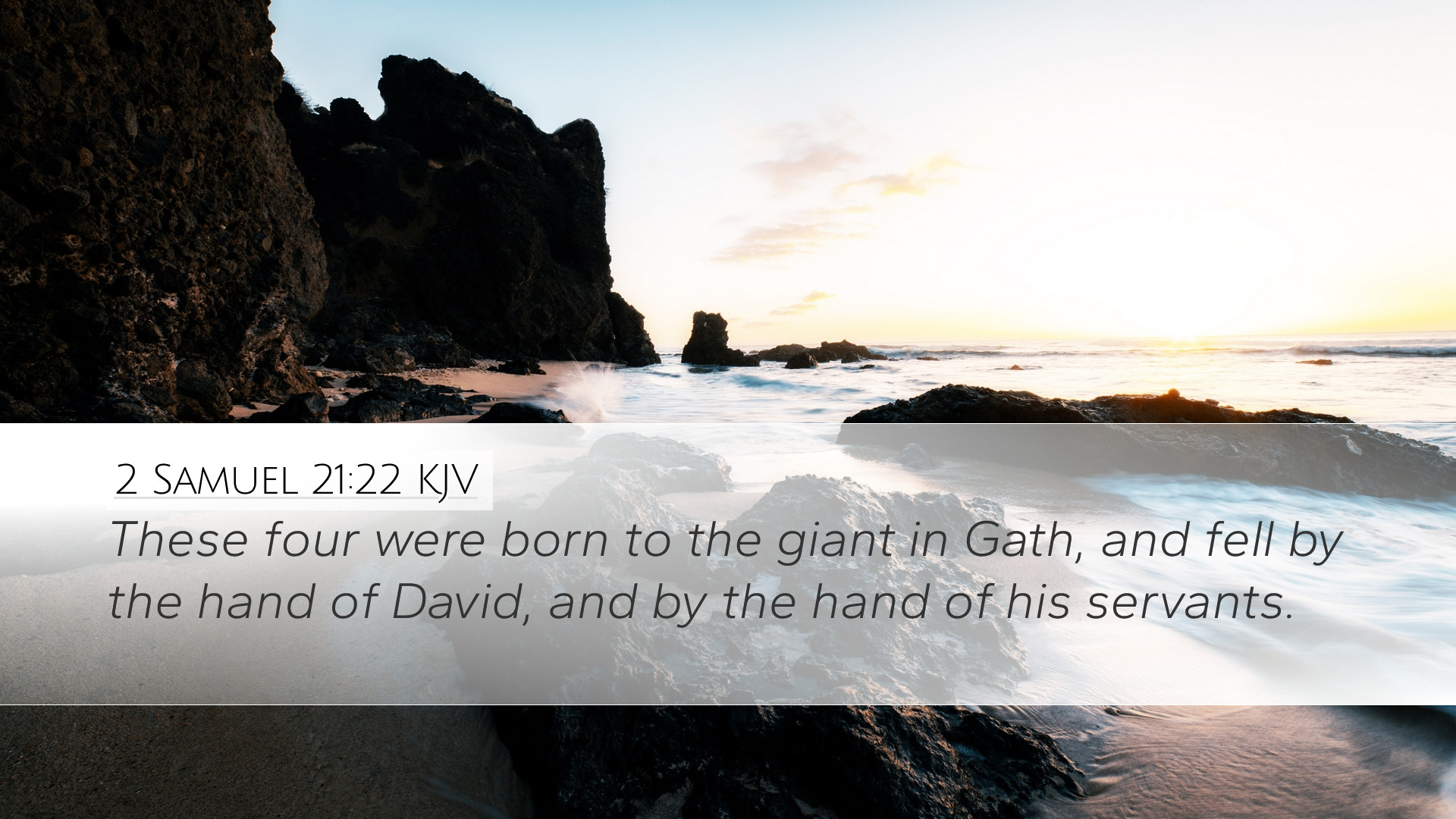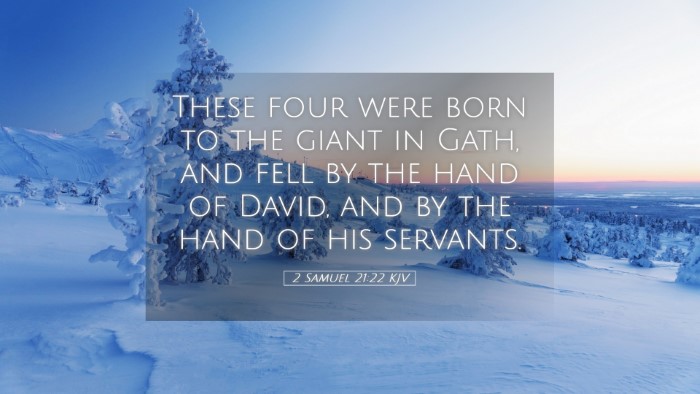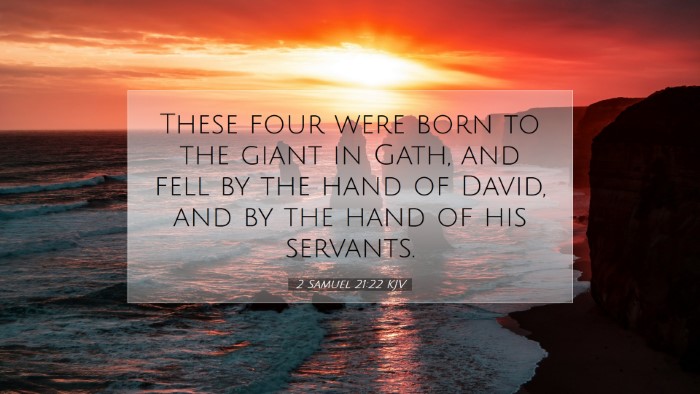Commentary on 2 Samuel 21:22
Bible Verse: "These four were born to the giant in Gath, and fell by the hand of David, and by the hand of his servants." (2 Samuel 21:22)
This verse concludes a narrative about David's encounters with the Philistines, specifically referencing the giants that arose during his reign. It underscores not only David's prowess in battle but also the collective effort of his servants in overcoming formidable foes. The following commentary synthesizes insights from multiple public domain sources.
Contextual Understanding
Matthew Henry emphasizes the significance of understanding the broader historical context of these encounters as a means to appreciate the gravity of David's victories. The statement about the giants highlights the supernatural threat represented by Goliath's kin, who were not merely physical adversaries but symbolic of the spiritual and cultural challenges Israel faced during this period.
Exploration of the Giants
Albert Barnes provides a detailed examination of the term “giant” in Hebrew terminology, suggesting its roots in the word “Rapha” which denotes 'to fall' or 'to cause to fall.' This deeper etymological perspective can add layers of meaning, wherein the giants symbolize not only physical strength but also the concept of a menacing presence that opposes the destiny and advancement of God's people.
- These giants were a constant reminder to Israel of their ongoing battles—both physical and spiritual.
- Barnes also draws a parallel to the broader biblical theme of God using the weak to conquer the strong, as seen through David's own rise from shepherd boy to king.
The Significance of David's Leadership
Adam Clarke offers insights into the leadership qualities exemplified by David. He notes that these victories were not solely due to David’s might but were also a reflection of the strategic military capabilities of his loyal servants. Clarke highlights:
- David's ability to inspire and lead men into battle against overwhelming odds.
- The communal aspect of victory where the roles of both the leader and the followers are acknowledged.
In this light, David becomes a model for contemporary leaders, demonstrating that true leadership is displayed in fostering unity and courage among one's followers in the face of daunting challenges.
Spiritual Implications
Henry also delves into the spiritual implications of this victory, stating that these encounters echo the spiritual warfare faced by Christians today. Just as David faced physical giants, believers must confront spiritual giants—sin, despair, and doubt—that threaten to overwhelm them.
This reminder is crucial for the church today, underscoring the need for divine assistance in overcoming challenges that seem insurmountable. David’s reliance on God, as demonstrated throughout his life, serves as a model for believers to undertake spiritual warfare through prayer, faith, and scriptural truth.
Conclusion
In summation, 2 Samuel 21:22 is not merely a historical record but an expansive illustration rich with theological significance. Through the lens of public domain commentaries, we can discern its implications for leadership, communal dynamics in spiritual battles, and the perennial relevance of God’s providence in confronting giants of all kinds. Whether viewed through the perspective of historical narrative, military strategy, or spiritual warfare, this verse encapsulates the essence of victory that is achieved through faith, collective effort, and reliance on divine guidance.


